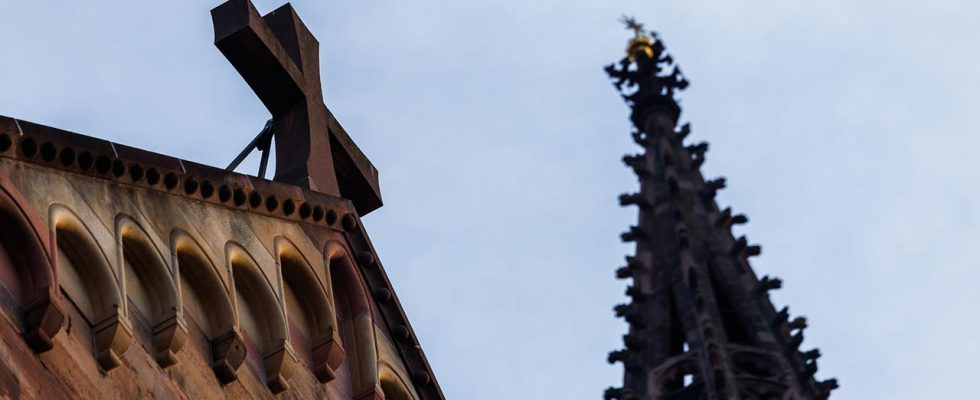For almost eight out of ten respondents to a study by the Evangelical Church, religion has little or no meaning. As early as next year, the proportion of people in Germany with religious affiliations could be below 50 percent.
Germans’ church ties and religiosity are dwindling faster than previously expected. This is a central result of the sixth church membership study that the Evangelical Church in Germany (EKD) published in Ulm at the meeting of the EKD Synod.
The majority will probably no longer be members of a church
According to the current trend, the proportion of people in Germany with religious affiliations will fall below 50 percent next year. Non-religious people are expected to exceed the 50 percent mark at the end of the 2020s and will therefore represent the absolute majority of the population, as Christopher Jacobi, research associate at the EKD’s Social Science Institute, explained to the 128 delegates of the church parliament when presenting the study.
The survey also comes to the conclusion that the halving of the number of members in the Protestant Church by 2060, predicted four years ago by another study, will likely be achieved in the 2040s. Only 27 percent of the Catholics surveyed are currently ruling out leaving the church. Among Protestants it is 35 percent. Around ten years ago in the previous church membership survey it was 74 percent.
According to the study, a slight majority of Germans are currently religiously Christian. If you add up the members of all Christian denominations, including those of the Orthodox and free churches, their share of the population accounted for 52 percent at the end of 2022. According to the study, religious people are already clearly in the minority in society today. 13 percent of those surveyed see themselves as church-religious, 25 percent as religious-distant, 56 percent are secular, because even among church members not everyone sees themselves as religious.
A large majority calls for church reforms
The Hesse-Nassau church president Volker Jung said that the constant and sometimes gradual turning away of people from the church was linked to the expectation that the church would change. According to the study, 80 percent of Protestant church members advocate changes. But that alone is not a guide to action, said Jung, who is chairman of the advisory board of the church membership investigation and a member of the EKD council. The consequences of the results must now be discussed.
6. Church membership survey of the EKD
Since 1972, the church membership survey has been published approximately every ten years. It is a religious-sociological study that examines attitudes towards religion and church among the population. In the current study, representative results for Catholic church members were also collected for the first time. The survey took place between October and December 2022 by the opinion research institute Forsa. A total of 5,282 people were surveyed. The study was led by the Social Sciences Institute of the EKD, and the Catholic German Bishops’ Conference was involved for the first time.

